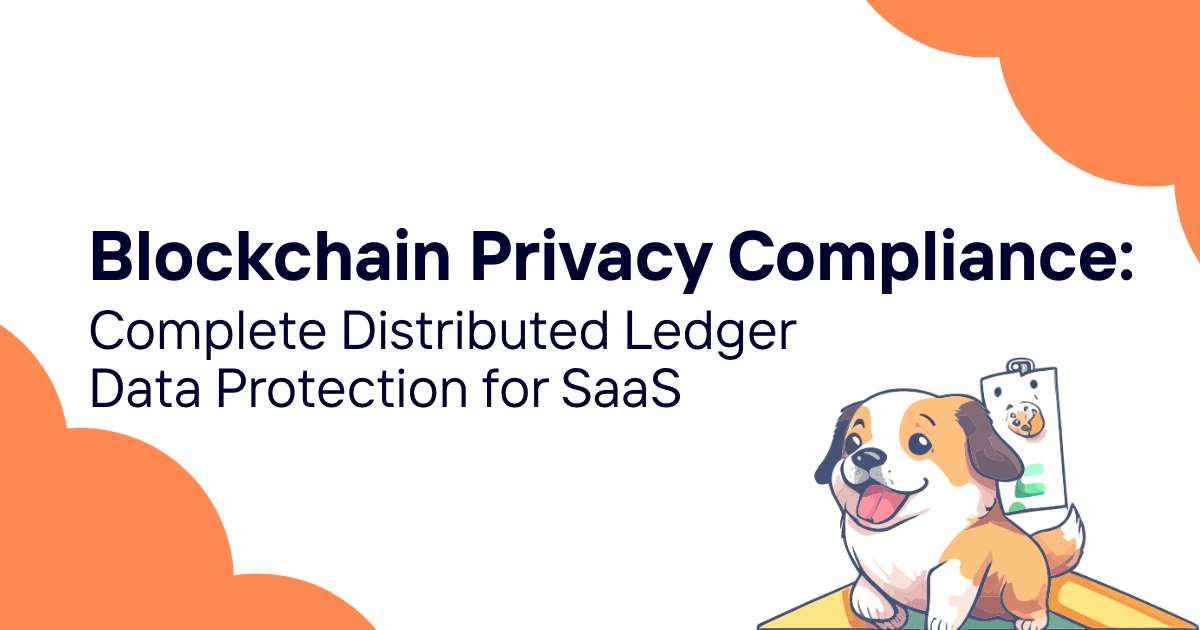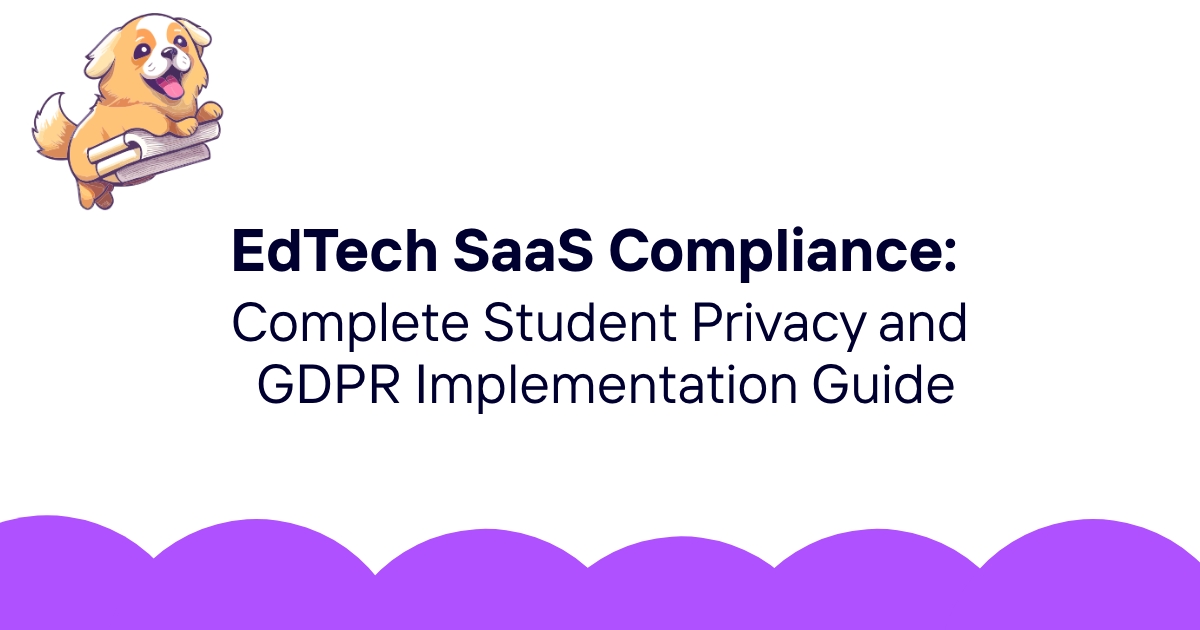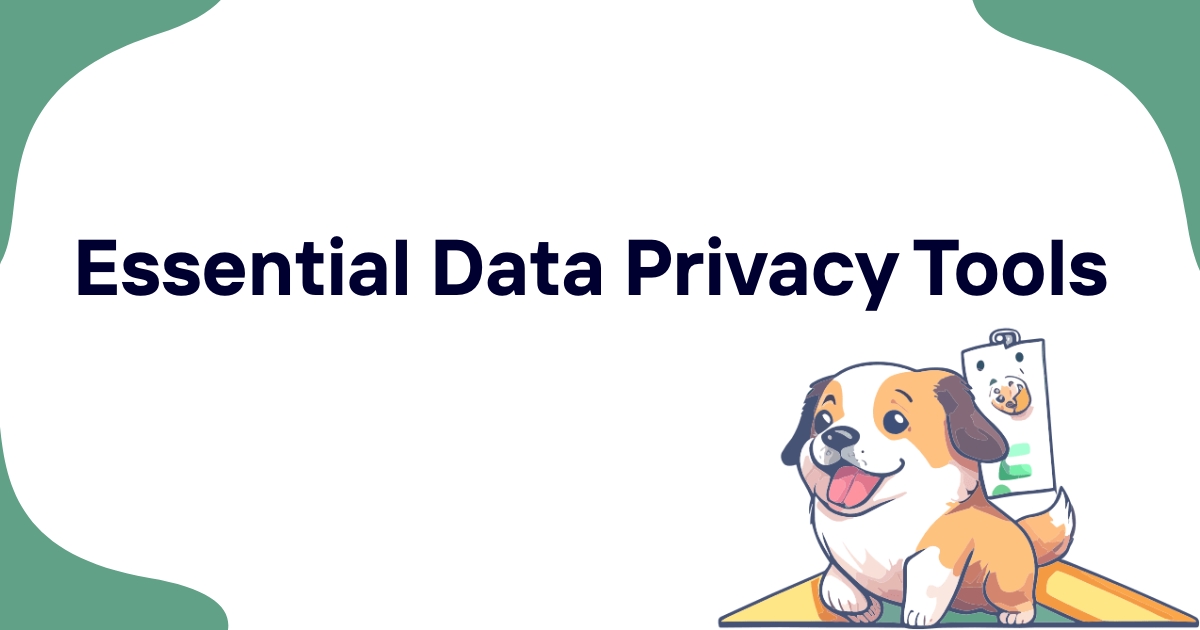Blockchain technology integration in SaaS platforms creates unique privacy compliance challenges that require understanding how distributed ledger immutability intersects with data subject rights, privacy regulations, and data protection requirements throughout blockchain-based system development and deployment. The fundamental tension between blockchain's immutable nature and privacy law requirements for data deletion creates complex technical and legal challenges.
The complexity of blockchain privacy compliance lies in reconciling immutable distributed ledger technology with privacy regulations that mandate data deletion, correction, and portability while maintaining blockchain integrity and functionality throughout SaaS applications and customer data management.
Blockchain implementations in SaaS environments often process personal data through smart contracts, transaction records, and distributed storage systems that require innovative approaches to privacy protection while preserving blockchain benefits including transparency, decentralization, and cryptographic security.
SaaS companies implementing blockchain privacy compliance gain competitive advantages through enhanced data integrity, innovative privacy solutions, improved customer trust, and positioning for blockchain-enabled business models while maintaining regulatory compliance and customer protection.
Proper blockchain privacy implementation requires systematic approach to data minimization, privacy-preserving technologies, off-chain storage strategies, and innovative compliance mechanisms that enable blockchain benefits while ensuring comprehensive privacy protection and regulatory adherence.
ComplyDog helps SaaS companies implement comprehensive blockchain privacy compliance through systematic ledger assessment, privacy-preserving technology integration, and innovative compliance frameworks that enable blockchain innovation while maintaining privacy protection and regulatory compliance.
Blockchain Privacy Fundamentals for SaaS
Understanding blockchain privacy fundamentals enables SaaS companies to navigate the inherent tension between distributed ledger immutability and privacy regulation requirements while implementing effective privacy protection strategies.
Immutability vs Privacy Rights Tension:
Address the fundamental tension between blockchain immutability and privacy rights including data deletion, correction, and portability while developing innovative solutions that preserve blockchain integrity and privacy compliance.
Implement approaches that provide privacy protection while maintaining blockchain benefits through creative technical solutions and hybrid architecture designs that address regulatory requirements.
Personal Data on Blockchain Identification:
Identify personal data stored on blockchain systems while ensuring comprehensive assessment of direct identifiers, pseudonymous data, and potentially identifiable information throughout distributed ledger implementations.
Configure data identification that provides systematic assessment while ensuring comprehensive coverage of personal data types and blockchain storage patterns throughout SaaS blockchain implementations.
Blockchain Governance and Privacy Responsibilities:
Establish blockchain governance frameworks that address privacy responsibilities while ensuring appropriate accountability and oversight throughout distributed ledger development and deployment activities.
Design governance that provides clear responsibility allocation while ensuring privacy protection and regulatory compliance throughout blockchain system operations and data management.
Smart Contract Privacy Considerations:
Address smart contract privacy implications while ensuring appropriate data protection and privacy controls throughout automated contract execution and blockchain-based business logic implementation.
Implement smart contract privacy that provides comprehensive protection while maintaining contract functionality through appropriate privacy-preserving design and data handling procedures.
Consensus Mechanism Privacy Impact:
Evaluate consensus mechanism privacy implications while ensuring appropriate understanding of how different consensus approaches affect privacy protection and data exposure throughout blockchain operations.
For insights on implementing privacy protection in complex technical environments, check out our AI compliance guide which addresses similar systematic privacy integration challenges.
Privacy-Preserving Blockchain Technologies
Implementing privacy-preserving blockchain technologies enables SaaS companies to leverage distributed ledger benefits while maintaining comprehensive privacy protection and regulatory compliance throughout blockchain system operations.
Zero-Knowledge Proof Implementation:
Implement zero-knowledge proof technologies that enable privacy-preserving verification while maintaining blockchain functionality and ensuring appropriate privacy protection throughout transaction processing and data validation.
Design zero-knowledge systems that provide comprehensive privacy while maintaining verification capabilities through appropriate cryptographic implementation and privacy-preserving protocol integration.
Ring Signatures and Privacy Coins:
Leverage ring signatures and privacy coin technologies that enhance transaction privacy while maintaining blockchain benefits and ensuring appropriate anonymity protection throughout distributed ledger operations.
Configure privacy coin integration that provides enhanced anonymity while ensuring regulatory compliance and appropriate transaction privacy throughout blockchain-based payment and value transfer systems.
Homomorphic Encryption for Blockchain:
Implement homomorphic encryption that enables computation on encrypted data while maintaining blockchain functionality and ensuring privacy protection throughout distributed ledger data processing.
Design homomorphic encryption that provides privacy-preserving computation while maintaining blockchain integrity through appropriate cryptographic implementation and computational privacy techniques.
Secure Multi-Party Computation:
Leverage secure multi-party computation that enables collaborative blockchain processing while maintaining data privacy and ensuring appropriate privacy protection throughout distributed computation activities.
Implement secure computation that provides collaborative capabilities while ensuring privacy protection through appropriate multi-party protocol implementation and distributed privacy techniques.
Private Blockchain Networks:
Design private blockchain networks that provide enhanced privacy control while maintaining distributed ledger benefits and ensuring appropriate access control throughout blockchain system operations.
GDPR Compliance for Blockchain Systems
Implementing GDPR compliance for blockchain systems requires innovative approaches that address data subject rights while maintaining distributed ledger integrity and functionality throughout SaaS blockchain implementations.
Right to Erasure Implementation:
Address GDPR's right to erasure in blockchain contexts while developing innovative solutions that provide data deletion capabilities without compromising blockchain integrity and immutability.
Implement erasure solutions that provide privacy compliance while maintaining blockchain benefits through off-chain storage, cryptographic deletion, and innovative privacy-preserving techniques.
Data Portability for Blockchain Data:
Implement data portability for blockchain-stored personal data while ensuring appropriate data extraction and transfer capabilities that comply with GDPR requirements without compromising system security.
Design portability solutions that provide comprehensive data access while maintaining blockchain integrity through appropriate data extraction and privacy-preserving transfer mechanisms.
Consent Management for Blockchain:
Implement consent management for blockchain systems while ensuring appropriate consent verification and enforcement throughout distributed ledger operations and smart contract execution.
Configure consent systems that provide comprehensive management while maintaining blockchain functionality through appropriate consent integration and privacy control mechanisms.
Controller and Processor Identification:
Identify data controllers and processors in blockchain systems while ensuring appropriate responsibility allocation and compliance coordination throughout distributed ledger operations and multi-party blockchain networks.
Design responsibility frameworks that provide clear accountability while ensuring comprehensive compliance through appropriate role definition and responsibility allocation procedures.
International Transfer Compliance:
Ensure international transfer compliance for blockchain systems while addressing cross-border data flows and ensuring appropriate transfer safeguards throughout global distributed ledger operations.
Off-Chain Storage and Hybrid Solutions
Implementing off-chain storage and hybrid solutions enables blockchain privacy compliance while maintaining distributed ledger benefits through innovative architecture designs that separate immutable records from personal data storage.
Hybrid Architecture Design:
Design hybrid blockchain architectures that separate immutable ledger records from personal data storage while maintaining system integrity and ensuring appropriate privacy protection throughout SaaS implementations.
Implement hybrid systems that provide blockchain benefits while enabling privacy compliance through appropriate architecture separation and data handling strategies.
Off-Chain Personal Data Management:
Manage personal data in off-chain storage systems while maintaining blockchain integration and ensuring appropriate privacy controls throughout data lifecycle management and system operations.
Configure off-chain storage that provides privacy compliance while maintaining blockchain connectivity through appropriate data management and integration procedures.
Hash-Based Data Reference Systems:
Implement hash-based data reference systems that store personal data off-chain while maintaining blockchain integrity through cryptographic references and ensuring appropriate privacy protection.
Design hash reference systems that provide data integrity while enabling privacy compliance through appropriate cryptographic implementation and off-chain data management.
Oracle Privacy Integration:
Integrate privacy-preserving oracles that provide external data access while maintaining blockchain functionality and ensuring appropriate privacy protection throughout external data integration activities.
Configure oracle privacy that provides comprehensive protection while maintaining blockchain integration through appropriate oracle design and privacy-preserving data access mechanisms.
Layer 2 Privacy Solutions:
Implement Layer 2 privacy solutions that enhance blockchain privacy while maintaining base layer security and ensuring appropriate privacy protection throughout scalability and functionality enhancement.
Smart Contract Privacy Implementation
Implementing smart contract privacy ensures that automated blockchain execution maintains data protection while providing business functionality and regulatory compliance throughout contract lifecycle management.
Privacy-Preserving Smart Contract Design:
Design smart contracts that implement privacy protection while maintaining contract functionality and ensuring appropriate data handling throughout automated execution and business logic implementation.
Implement contract privacy that provides comprehensive protection while maintaining automation through appropriate privacy-preserving design and contract development procedures.
Data Minimization in Smart Contracts:
Implement data minimization in smart contract design while ensuring appropriate data collection and processing limitation throughout automated contract execution and blockchain-based business logic.
Configure contract minimization that provides necessary functionality while ensuring privacy protection through appropriate data handling and contract scope limitation procedures.
Access Control for Smart Contracts:
Implement access control mechanisms for smart contracts while ensuring appropriate permissions and privacy protection throughout contract execution and data access activities.
Design contract access control that provides comprehensive protection while maintaining functionality through appropriate permission management and privacy control implementation.
Smart Contract Audit for Privacy:
Conduct smart contract audits that address privacy implications while ensuring appropriate security assessment and privacy protection throughout contract development and deployment activities.
Configure audit processes that provide comprehensive evaluation while ensuring privacy compliance through systematic contract assessment and privacy validation procedures.
Upgradeable Contract Privacy Management:
Manage privacy implications of upgradeable smart contracts while ensuring appropriate upgrade procedures and privacy protection throughout contract evolution and functionality enhancement.
Identity and Authentication Privacy
Implementing identity and authentication privacy in blockchain systems ensures that user identification maintains privacy protection while providing necessary functionality and regulatory compliance throughout distributed ledger operations.
Self-Sovereign Identity Implementation:
Implement self-sovereign identity solutions that provide user control while maintaining privacy protection and ensuring appropriate identity management throughout blockchain-based authentication systems.
Design identity systems that provide user sovereignty while ensuring privacy protection through appropriate identity architecture and user control mechanisms.
Pseudonymous Identity Management:
Manage pseudonymous identities that provide privacy protection while maintaining functionality and ensuring appropriate identity linking and unlinking throughout blockchain system operations.
Configure pseudonymous systems that provide privacy benefits while ensuring necessary functionality through appropriate identity management and privacy protection procedures.
Biometric Privacy Protection:
Protect biometric data in blockchain identity systems while ensuring appropriate biometric handling and privacy protection throughout identity verification and authentication activities.
Implement biometric protection that provides comprehensive privacy while maintaining identity verification through appropriate biometric handling and privacy-preserving techniques.
Decentralized Identity Privacy:
Implement decentralized identity systems that enhance privacy while maintaining interoperability and ensuring appropriate identity management throughout distributed identity networks and blockchain integration.
Design decentralized identity that provides privacy benefits while ensuring system integration through appropriate identity architecture and interoperability procedures.
Identity Recovery Privacy Considerations:
Address identity recovery privacy implications while ensuring appropriate recovery mechanisms and privacy protection throughout identity backup and restoration activities.
Regulatory Compliance and Blockchain Governance
Ensuring comprehensive regulatory compliance and blockchain governance enables SaaS companies to navigate evolving blockchain regulations while maintaining innovation capabilities and customer trust throughout distributed ledger implementation.
Multi-Jurisdictional Blockchain Compliance:
Navigate multi-jurisdictional compliance for blockchain systems while ensuring appropriate regulatory adherence across different legal frameworks and maintaining global system operations.
Implement compliance frameworks that provide comprehensive coverage while ensuring blockchain functionality through systematic regulatory coordination and compliance management.
Financial Regulation Compliance:
Address financial regulation compliance for blockchain systems while ensuring appropriate adherence to financial services requirements and maintaining blockchain-based financial functionality.
Configure financial compliance that provides comprehensive coverage while ensuring blockchain benefits through appropriate regulatory coordination and financial services compliance.
Data Localization and Blockchain:
Address data localization requirements for blockchain systems while ensuring appropriate geographic compliance and maintaining distributed ledger functionality throughout global operations.
Design localization compliance that provides regulatory adherence while maintaining blockchain benefits through appropriate geographic distribution and data handling procedures.
Audit and Compliance Documentation:
Maintain comprehensive audit and compliance documentation for blockchain systems while ensuring appropriate evidence collection and regulatory reporting throughout distributed ledger operations.
Implement documentation that provides compliance support while ensuring blockchain functionality through systematic evidence collection and audit trail maintenance procedures.
Emerging Blockchain Regulation Preparation:
Prepare for emerging blockchain regulations while ensuring appropriate adaptation capabilities and maintaining innovation opportunities throughout evolving regulatory environments.
Configure regulatory preparation that provides compliance readiness while ensuring innovation capability through systematic regulatory monitoring and adaptive compliance frameworks.
Ready to unlock blockchain innovation while maintaining privacy protection? Use ComplyDog and implement comprehensive blockchain privacy compliance that transforms distributed ledger challenges into competitive advantages through innovative privacy solutions and systematic regulatory compliance.


















